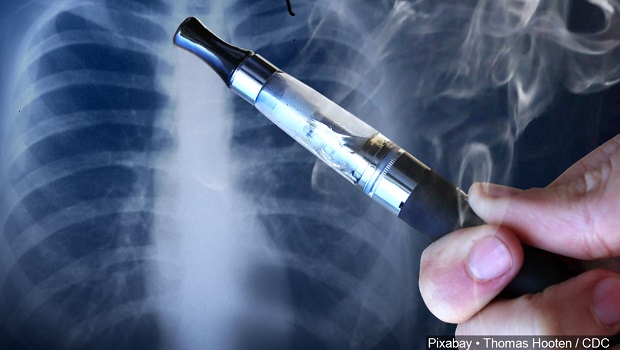Vaping: Friend or foe?

Dr. Jennifer McClure talks about the recent rise in deaths and injuries associated with vaping and what you should know about this risk.
by Jennifer McClure, PhD, Senior Investigator and Director of Research, Faculty & Development, Kaiser Permanente Washington Health Research Institute
Given the recent rise in vaping-related deaths, it seems a pertinent time to question whether vaping is friend or foe. On one side of the debate is the argument that vaping could be less harmful than smoking combustible tobacco or marijuana. On the other side, however, is the mounting evidence that vaping is associated with a concerning rise in death and respiratory illness.
Ultimately, determining whether vaping has greater potential for benefit or harm will take time, good science, and the advantage of hindsight. In the meantime, here are a few things you should know about vaping and the condition that’s come to be known as “EVALI,” which stands for “e-cigarette or vaping product use associated lung injury.”
What is vaping?
Vaping is the act of inhaling the vapor produced by an e-cigarette (also called a vape pen or vaporizer). These devices first entered the US market in 2007 and were touted as a safer alternative to smoking combustible tobacco. Vaping is now a common method for inhaling nicotine and tetrahydrocannabinol, or THC, the main psychoactive compound in cannabis. Use of both is particularly prevalent among young adults and youth.
What are the risks?
As of November 5, 2019, the U.S. Centers for Disease Control and Prevention (CDC) reports 2,051 documented EVALI cases and 39 confirmed deaths associated with vaping. The cause remains unknown, but it is believed to be due to one or more substances in the vape liquids, particularly vitamin E acetate. The observed lung injuries are similar to that seen with exposure to toxic chemical fumes, poisonous gases, and other toxic agents. Most, but not all, cases have been linked with THC vaping.
E-cigarettes (and other vaping devices) have also been associated with an increased risk of harm due to accidental explosion and fires. A recent case report in the New England Journal of Medicine documented a 17-year-old boy who suffered a broken jaw, tooth loss, burns, and severe facial damage when his vape pen exploded in his mouth. Hundreds of similar cases have been documented by the U.S. Fire Association.
Additional injuries and deaths have been linked to toxic exposure to the vape juice, which can be harmful—especially to children—if swallowed or spilled on the skin.
What you can do to protect yourself and others
The CDC recommends that you stop all vaping (THC or nicotine), in light of the recent rise in EVALI deaths and injuries. If you are using an e-cigarette to quit smoking, considering switching to an FDA-approved form of nicotine replacement therapy like the patch or gum, or talk with your doctor about other treatment options.
Avoid buying any vaping products off the street, and never modify or add any substances to an e-cigarette or vape pen that were not intended by the device manufacturer.
If you are pregnant or not yet an adult, don’t vape.
Keep e-cigarettes and vape juice away from small children.
Follow the tips offered by the U.S. Food and Drug Administration to reduce the risk of explosion-related injuries.
Finally, if you know someone who vapes, share this information with them. And if you are a parent, talk with your children. An estimated one in five high school students vape nicotine and one in three have vaped cannabis. If your child has not already been faced with the opportunity to vape, the odds are good they will be soon.
Smoking & Oral Health

Can a focus on better oral health help smokers quit tobacco?
Dr. Jennifer McClure partnered with the leading quitline provider to see what happens when smokers are counseled about oral health and tobacco.
research

Oral Health 4 Life: 10 years of research to improve smokers’ health and dental care
As Dr. Jennifer McClure completes the last of three innovative studies, she reflects on how the work began, the difference it may make, and what happens next.
healthy findings blog

Can being accepting and mindful help you stop smoking?
Tobacco remains a public health priority. Jennifer McClure, PhD, discusses her findings comparing ’acceptance and commitment therapy’ to standard care.


